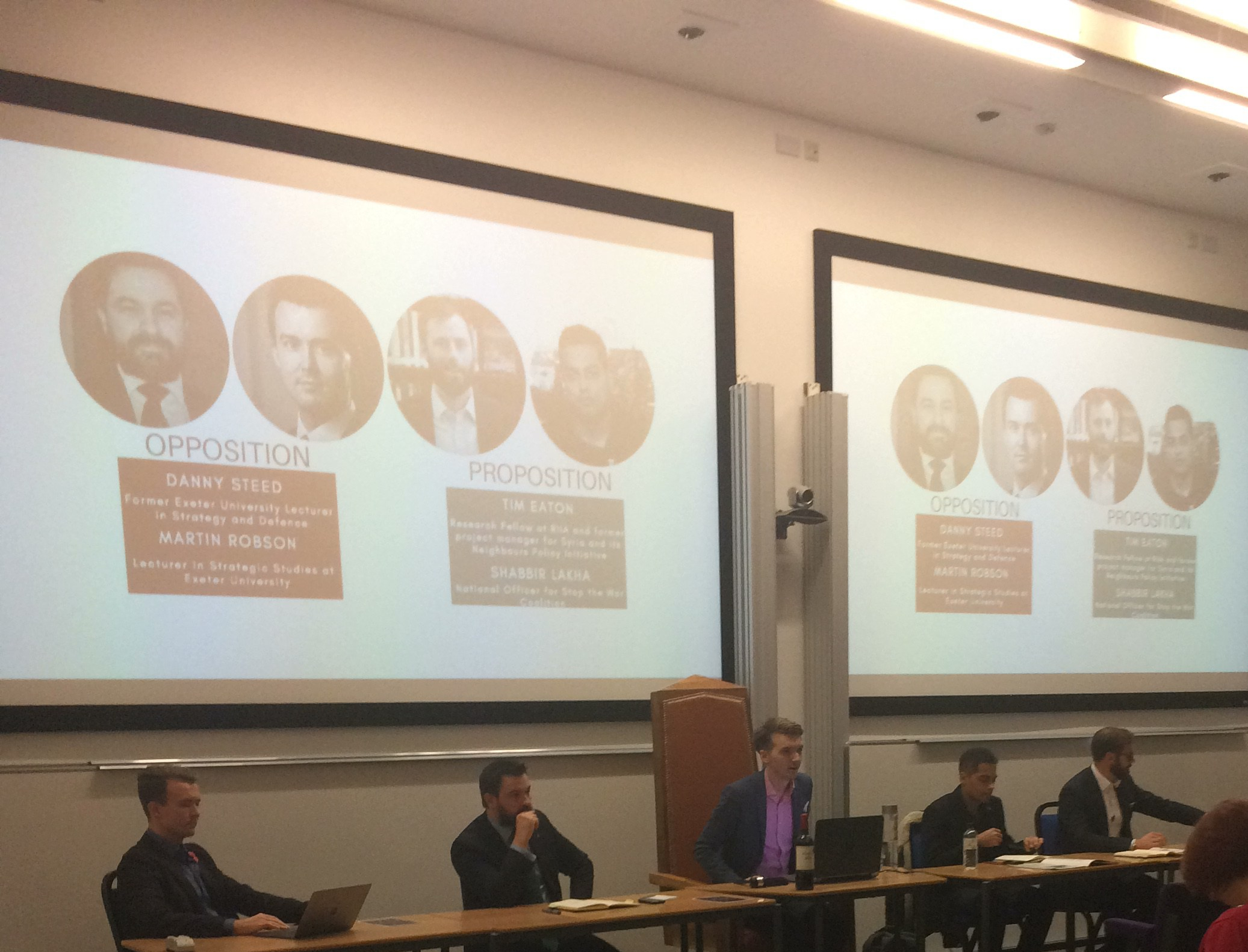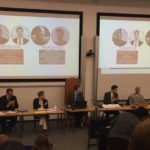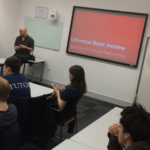
Having suffered four major terrorist attacks this year, it is not surprising that people in the UK are starting to question whether the war on terror was worth the cost, or whether it has failed completely.
Tim Eaton, research fellow at the Royal Institute for International Affairs, opened the debate for the proposition. He began by arguing that the war on terror is an ambiguous and permanent war. He pointed out that terrorism has no universal definition, but that terrorism is a tactic rather than an enemy. He asked, how can you win a war against a tactic? Eaton went on to argue that the war on terror fails to tackle the underlying causes of terrorism, citing Mary Kaldor’s claim that a military response to terrorism simply increases strength of the terrorist cause. He claimed that the US tends to shoot first, and think about local politics later.
Also arguing for the proposition was Shabbir Lakha, from the Stop the War Coalition. Lakha’s argument centred around the idea tha the invasion of Afghanistan led to increased turmoil in the entire region, and the growth of terrorist groups. Lakha referred to the Chilcot Report into the Iraq war which found that alternatives to war were ignored. Lakha also quoted Jeremy Corbyn, former leader of the Stop the War Coalition, saying that war in Iraq would “set off a spiral of conflict, of hate, of misery, of desperation that will fuel the wars, the conflict, the terrorism, the depression and the misery of future generations.”
The UK and US “will continually be trying to cut the head off another snake”
Danny Steed, former lecturer at the University of Exeter in the Strategy and Security institute, argued for the opposition. He claimed that the war on terror should not be equated to the war in Iraq. He argued that the war on terror had the limited aims of destroying the core of Al-Qaeda, and ensuring that Afghanistan did not continue to be a haven for terrorists. He claimed that these limited aims were achieved, and that this is evident in the fact that the death toll of terror attacks has never come close to that of 9/11.
Martin Robson, a lecturer in Strategic Studies at the University of Exeter, supported Steed’s argument by reminding the audience of two facts: first, that the invasion of Iraq was unanimously sanctioned by the UN, and second, that 9/11 included an attack on the Pentagon, which US law requires to be met with a military response. He also emphasised Steed’s point that the war on terror had limited aims, and that these aims were achieved.
The ‘War on Terror’ is a term that we hear regularly in the media, but it is rarely clear to what exactly the term refers. This question was central to this week’s debate. Both sides offered distinct meanings of the term, and this is what informed their position on the debate.
“Our constant intervention is what is blowing up in our faces”
The proposition argued that the war on terror is inherently vague and impossible to win, whereas the opposition claimed that the war on terror was a limited operation in Afghanistan, and that it shouldn’t be confused with the war in Iraq, which was a separate war of choice. In response to this, the proposition argued that although the war in Afghanistan had limited aims, it failed to end terrorism – or even come close – because it did not look at causal issues like where terrorists come from, or how they are funded. Eaton argued that in doing this, the UK and US “will continually be trying to cut the head off another snake.”
The Stop the War Coalition, for which Shabbir Lakha is National Officer, became the subject of much contention during this debate. Lakha argued that Stop the War was set up in response to the war on terror, on the basis that war would increase terrorism, civilian casualties, and Islamophobia in the UK. Lakha claimed that these points had all since been vindicated: “our constant intervention is what is blowing up in our faces”. Robson charged Stop the War with lacking balance, claiming that last week the Coalition’s website mentioned nothing about the terror attack in New York, only allegations about casualty numbers in Syria. Steed appeared to accuse the organisation, or Lakha himself, of believing soldiers wake up in the morning and look forward to killing civilians. Lakha denied this charge as “particularly crazy”.
The panel highlighted that defining terrorism and the war on terror is essential to deciding whether the war has failed.
The proposition won the debate, upholding the motion: “This House Believes the War on Terror Has Failed”.


Average Rating